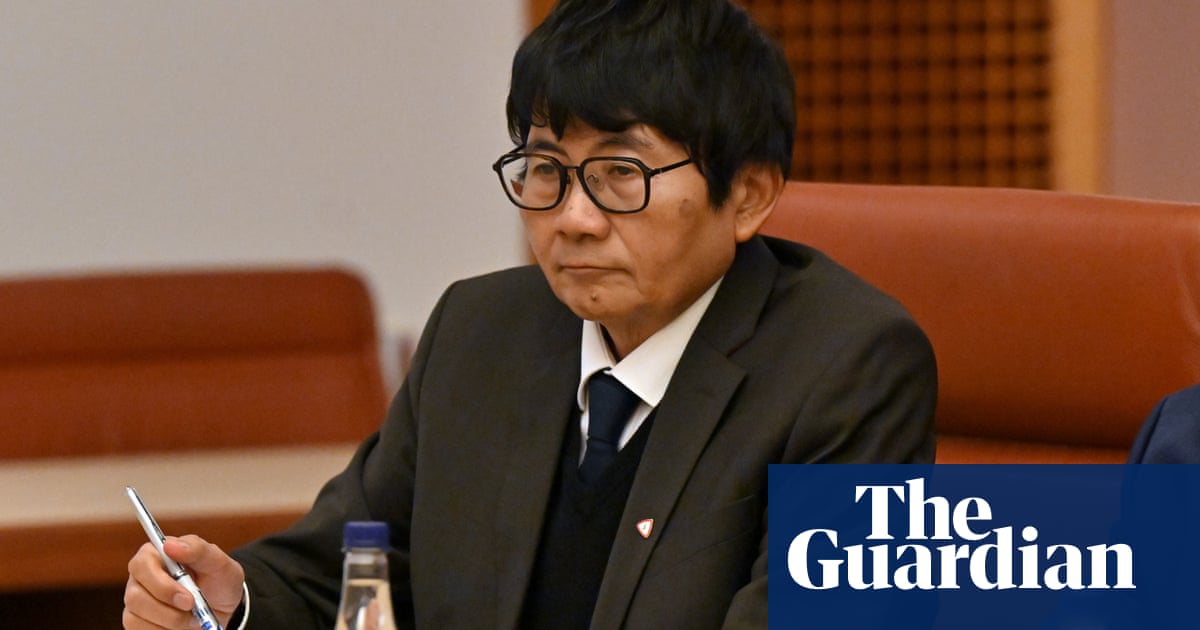Indonesia’s ambassador met with senior Australian diplomats on Tuesday as the nation was thrust into an election campaign debate about a potential Russian military presence in the region – and on the same day Anthony Albanese accused Peter Dutton of damaging the bilateral relationship.
Indonesia’s ambassador to Australia, Dr Siswo Pramono, met with the department of foreign affairs and trade’s deputy secretary, Michelle Chan, who leads its south-east Asian policy division. One diplomatic source said Indonesia requested the meeting.
Sign up for the Afternoon Update: Election 2025 email newsletter
The meeting has been described by multiple sources as part of a regular series of engagements between Pramono and Chan, who is also responsible for managing the department’s diplomatic relationship with Indonesia.
Neither Pramono or the department would comment on the issues discussed at the meeting, with a Dfat spokesperson stating it was “not appropriate to comment on private conversations” in accordance with “longstanding diplomatic practice”.
But Hervé Lemahieu, the research director at foreign policy thinktank the Lowy Institute, said “it would be more surprising to me ifRussiawasn’t raised in discussion than if it was”.
“Given the caretaker period, Dfat would be mindful of not damaging the relationship in any way and I see it in that context,” Lemahieu said.
A diplomatic source said the meeting was not called to specifically discuss Russia’s reported proposal to base military aircraft in a remote corner of eastern Indonesia, but confirmed the exchange could have extended beyond the formal discussion plan.
Indonesia has featured in the federal election campaign ever since aUS military publication, Janes, reported that Jakartahad received an official request from Moscow seeking permission for its military aircraft to be based at Manuhua air force base in the province of Papua. The story cited Indonesian government sources.
Tuesday’s meeting, which took place less than two weeks before an election, followed an Australian government request for more information about the Russian proposal and the Indonesian response, including from the foreign and defence ministers. It is not known when the Indonesians requested the meeting.
Canberra made urgent calls to Jakarta after the story’s publication earlier this month. Within hours, Richard Marles said in a statement that he had discussed the report with Indonesia’s defence minister, Sjafrie Sjamsoeddin.
“[He] said to me in the clearest possible terms, reports of the prospect of Russian aircraft operating from Indonesia are simply not true,” Marles said.
Last week an Indonesian foreign ministry spokesperson, Rolliansyah Soemirat, said the government had not granted permission to any country to establish a military base on its territory, but his statement did not mention if Russia had made a request.
Sign up toAfternoon Update: Election 2025
Our Australian afternoon update breaks down the key election campaign stories of the day, telling you what’s happening and why it matters
after newsletter promotion
The story continued to be a political issue when Dutton wrongly told a press conference that Indonesia’s president, Prabowo Subianto, had announced the Russian proposal. During the second leaders debate hosted by the ABC,he admitted this was a mistake.
“The reference I was making should not have been to the president, it was in relation to sources from the Prabowo government,” Dutton said. “It was a mistake and I am happy to admit [that].”
By then, Albanese had already accused Dutton of “verballing” the Indonesian president and accused him of “extraordinary overreach” before the facts were clear. The foreign affairs minister, Penny Wong, had described Dutton’s comments as reckless and accused him of “fabricating” a statement.
During the third leaders’ debateon Tuesday, Albanese accused Dutton of “damaging” a “really important relationship” with his comments.
Later in the debate, Dutton referenced his relationship with Prabowo while responding to questions about his ability to manage Australia’s relationship with key allies.
“I met the current president of Indonesia when he was defence minister,” Dutton said. “I had a meeting with him in Canberra when he was the president-elect.”
